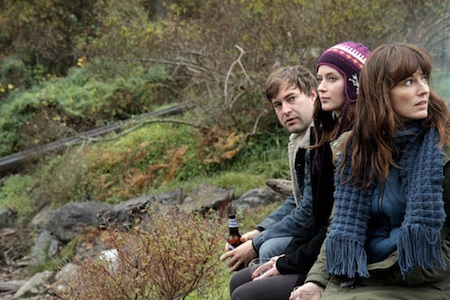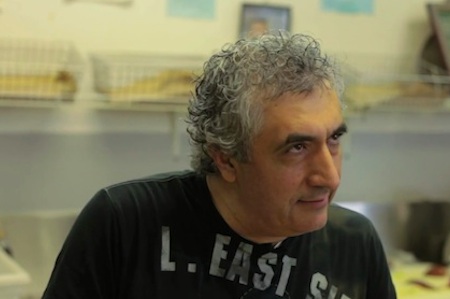No one would argue that the Northwest Filmmakers’ Festival hasn’t been a success since it began back in 1973. (It wouldn’t be closing in on its 40th year otherwise.) But somehow it has managed to reside in the shadow of the Rose City’s other big cinema event, the Portland International Film Festival.
You could make the simple argument that PIFF maintains its marquee status due to the filmic firepower it draws in every year. In spite of local debuts of work by the likes of Gus Van Sant, Kelly Reichardt and Lynn Shelton, the appearance of some amazing documentary films, and everyone from Michael Almereyda and Todd Haynes to Christine Vachon and Leonard Maltin taking time to judge a short subject competition over the fest’s history, the spotlight sometimes doesn’t find NWFF.
But what the last few years have proven is that the scales are slowly becoming balanced between the two events. And this year’s installment, the 39th NWFF, is bringing that equity even closer.
Truth be told, there’s no real difference in the ideology behind the film selection in this particular year, compared with the past. This week of screenings (ending this coming Sunday) focuses on three programs of short subjects that hail from up and down the Northwestern U.S. and British Columbia, even dipping into the pool of talent from the Yukon Territory (Come Back, Little Star, director Andrew Connors’ experimental look at how parents stay connected to their children even when they are grown), with some feature-length narrative films and documentaries scattered into the schedule.
Perhaps the selection committee has become more, well, selective, or there truly is something in the water up here, but this year’s run of films is one of the strongest to date.
I credit a great deal of this to the smart, thoughtful people making documentaries these days. The run of nonfiction works that pepper the schedule of the 2012 NWFF has been second-to-none in terms of quality, wisdom, and entertainment value.
That last category belongs almost entirely to Lewis Bennet’s The Sandwich Nazi. This disturbingly hilarious featurette brings larger-than-life deli owner Salam Kahil to the world, allowing him to pontificate on the plight of homeless youth with the same passion and humor as he does having a candle stuck up his ass during his days as a male escort.
The bulk of the documentaries were history lessons that brought to life various moments in the history of the Northwest, from issues with water and air pollution in Oregon via a screening of a 1962 TV piece Pollution in Paradise to a detailed exploration of “the last great American train robbery” that occurred in Ashland, Oregon in 1923.
If there’s a thread that runs through the majority of the fictional works on display this time around, it is one of narrative restraint, an almost eerie sense of quiet that pervades the films. The plots, such as they are, unfold calmly and naturally.
That’s at least the case for the work scheduled for the big finish of a closing weekend, including the Portland debut of Lynn Shelton’s delicate and biting kitchen sink dramedy Your Sister’s Sister and the festival’s best narrative work, Buoy, a heartbreaking and engrossing film that follows an extended phone conversation between an estranged pair of siblings. Buoy is anchored entirely by a nuanced performance from Tina Holmes (best known for playing Maggie in Six Feet Under‘s final season), who not only met the challenge of being on screen for the entire 76-minute running time of the picture but also touches on the entire gamut of human emotion in that hour-plus stretch.
The narrative features that showed up earlier in the festival were less successful as they leaned on more traditional modes of storytelling. Charming as they are, James Westby’s Rid of Me and Jon Garcia’s Mormon missionary coming-of-age flick The Falls carry plenty of style (the cinematography in Garcia’s film is particularly sharp) but the substance is threadbare and the actors within them can’t bear the slight weight of their given roles.
Minor inconveniences both. The hit-to-miss ratio at this year’s Northwest Filmmakers’ Festival is skewed strongly towards the former. A point that has me, maybe for the first time, actually looking forward to the 40th edition of this fest. But until then, there are more movies yet to see.





